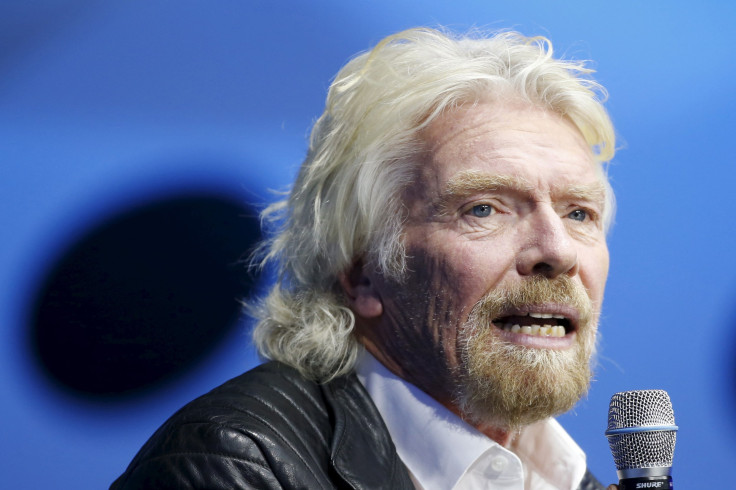Richard Branson Admits ‘Sadness’ Over Virgin America's $2.6 Billion Purchase By Alaska Air

Virgin Group founder Richard Branson said he was saddened by the planned sale of Virgin America Inc. and West Coast rival Alaska Air Group Inc. The airlines Monday said Alaska Air will pay approximately $2.6 billion in cash, or $57 per share, for its rival after weeks of speculation that Virgin was considering takeover bids.
The British billionaire said he couldn’t block the deal because his investment in Virgin America is restricted by U.S. foreign investment rules. Branson owns a 22 percent stake in the California-based airline through a hedge fund and Virgin Group, and some of his shares are nonvoting shares, diminishing his influence in the discussions.
“I would be lying if I didn’t admit sadness that our wonderful airline is merging with another,” Branson said Monday in a blog post on Virgin’s website. “There was sadly nothing I could do to stop it.”
Alaska Air said it sought a Virgin America takeover to grow profits and drive its broader expansion strategy from U.S. coast to coast. The acquisition will also help Alaska Air tap what it said was a growing market for affordable fares with premium services, including in-flight Wi-Fi, luxurious décor and airport lounges — a segment Virgin America helped pioneer in North America.
“We believe this is an area that’s underserved … and where we can make inroads,” Andrew Harrison, Alaska Air’s chief commercial officer, said Monday on a call with investors.
Alaska Air said the deal, which has a transaction value of $4 billion, includes $2.6 billion in equity value and $1.4 billion in debt and airplane leases. Shareholders could approve the merger in June, while U.S. regulators could sign off on the merger in the third or fourth quarter of 2016, Ben Minicucci, chief operating officer for Alaska Air, said on the call.
Shares in Virgin America (NASDAQ:VA) soared 40 percent to $54.50 in late morning trading. Alaska Air (NYSE:ALK) saw shares dip about 5.8 percent to $77.20.
Both airlines have billed themselves as a lower-cost but more comfortable alternative to the four mega U.S. carriers — American, Delta, United and Southwest — which together control more than 80 percent of the U.S. market. Alaska Air and Virgin America carved a niche along the West Coast by offering frequent budget flights to major technology and business hubs like San Francisco, Los Angeles and Seattle.
Branson said he initially launched Virgin America in August 2007 out of frustration with existing U.S. airlines. “As more airlines consolidated and grew larger and more focused on the bottom line, flying in the U.S. became an awful experience,” he said in his blog post.
Modeled after Virgin Group’s existing airlines, Virgin Atlantic in the U.K. and Virgin Australia, Branson said he sought to “make flying good again” by introducing fleet-wide amenities such as universal internet access, touch-screen seatback entertainment, blue mood lighting and power outlets at every seat. On rival carriers, many extras are reserved for long-distance or international flights.
Alaska Air executives promised to keep and expand Virgin America’s trademark approach. “Together we will continue to deliver what customers tell us they want: low fares, unmatched reliability and outstanding customer service,” Brad Tilden, Alaska Air’s chairman and CEO, said in a statement.
© Copyright IBTimes 2024. All rights reserved.





















